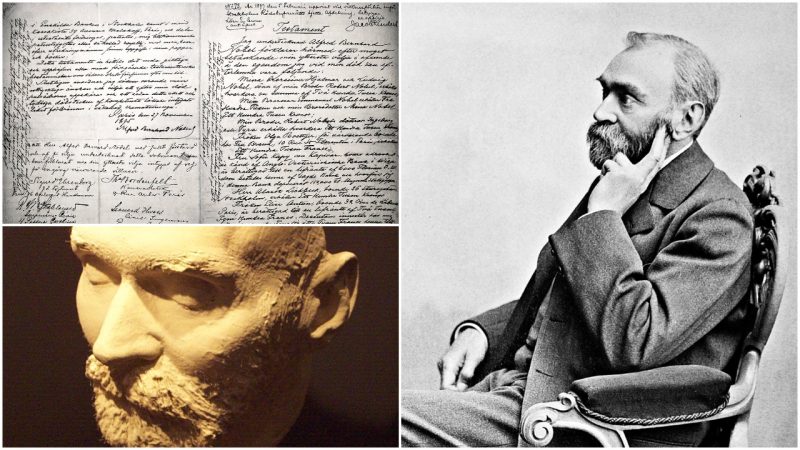The Nobel Prize is considered one of the most recognizable and prestigious awards possible, honoring men and women from all over the world for outstanding achievements in different fields.
The founder of the awards, Alfred Nobel,was himself known for many achievements and contributions to various fields, holding 335 different patents. However, the reason Nobel left most of his fortune to establish the Nobel Foundation was to improve his public image, not wanting to be remembered as the “Merchant of Death” for inventing dynamite.
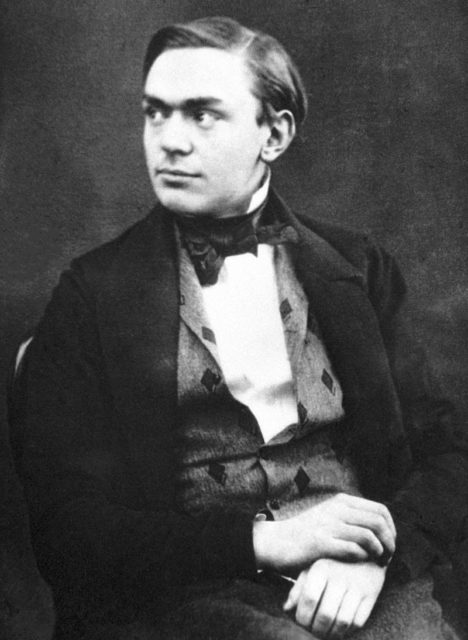
Alfred Nobel was born in 1833 to a family of engineers in Stockholm, Sweden. Nobel as a young man studied with Nikolai Zinin, a prolific chemist. In 1850, he met Ascanio Sobrero, the inventor of nitroglycerin, in Paris. Intrigued by nitroglycerin’s unpredictable nature of exploding under pressure or heat, Nobel became interested in finding a way to control it and make a commercially usable explosive. In 1857 he filed his first patent, an English patent for a gas meter, while his first Swedish patent was on ‘ways to prepare gunpowder.’ After years focusing on improving the stability of the explosives, in 1867, at the age of 34, Nobel invented dynamite, a substance much easier and safer to control than nitroglycerin. Dynamite was an immediate commercial success, it was patented in the US and the UK and was widely used in mining.
“My dynamite will sooner lead to peace than a thousand world conventions. As soon as men will find that in one instant, whole armies can be utterly destroyed, they surely will abide by golden peace.” Alfred Nobel
Nobel also invented and patented bastille, a precursor to various smokeless military explosives. He also purchased Bosfor iron and steel, and transformed it into a major cannon manufacturer. During his lifetime he amassed a fortune from his 355 inventions, from which dynamite was the most significant.
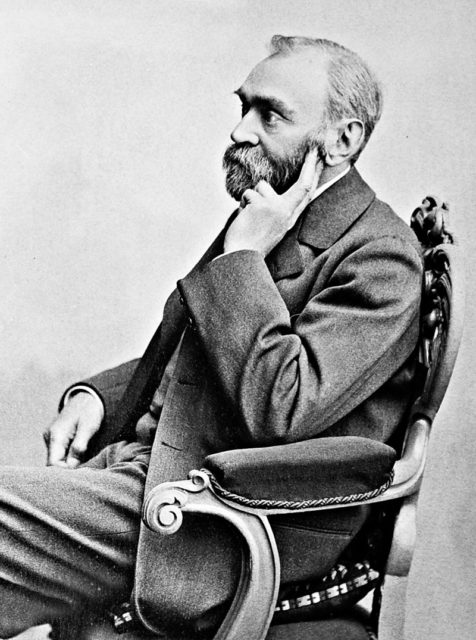
When Alfred’s brother Ludwig died in 1888, a French newspaper mistakenly published Alfred’s obituary. Reading his own obituary Nobel was disgusted to find out his public image. The newspaper condemned Nobel for inventing dynamite, giving him the infamous nickname Le marchand de la mort est mort (“The merchant of death is dead”) and went on to say “Dr. Alfred Nobel, who became rich by finding ways to kill more people faster than ever before, died yesterday.”
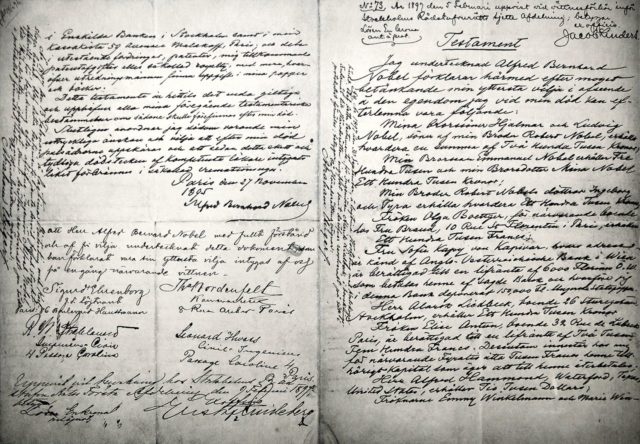
To Alfred, this obituary was a warning. He spent his lifetime alone inventing things and was deeply disturbed and concerned with how he would be remembered. This unfortunate event inspired him to make alterations in his will, to improve his public image, and to be remembered for a good cause.
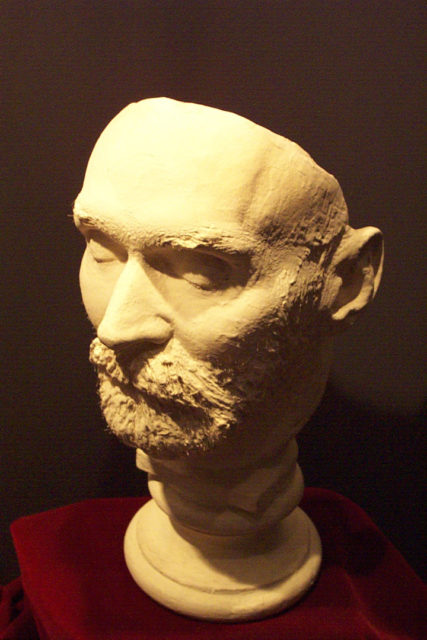
In 1895, one year before his death, Nobel composed the last will which specified that his fortune be used to create a series for prises for those who confer the “greatest benefit on mankind” in physics, chemistry, physiology or medicine, literature, and peace. To widespread astonishment, Dr. Alfred Nobel bequeathed 94% of his total assets, 31 million SEK (c. US$186 million, €150 million in 2008), to establish the five Nobel Prizes.
